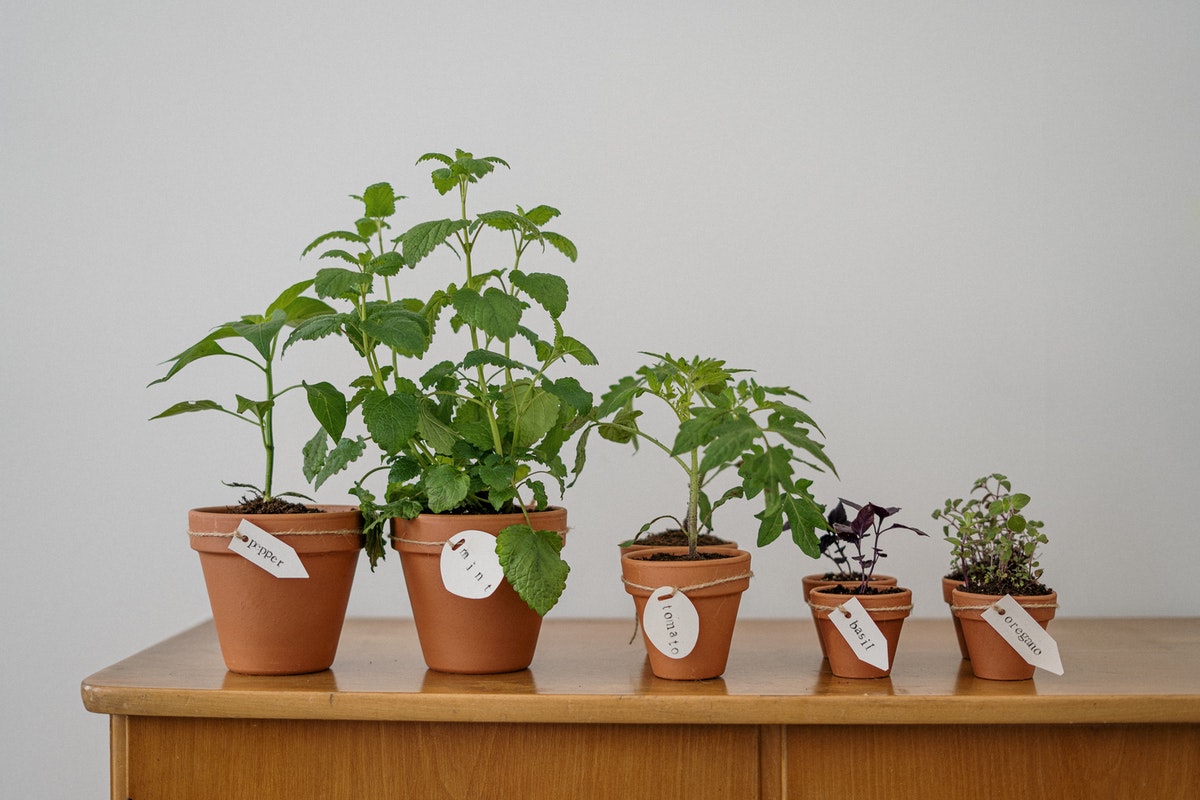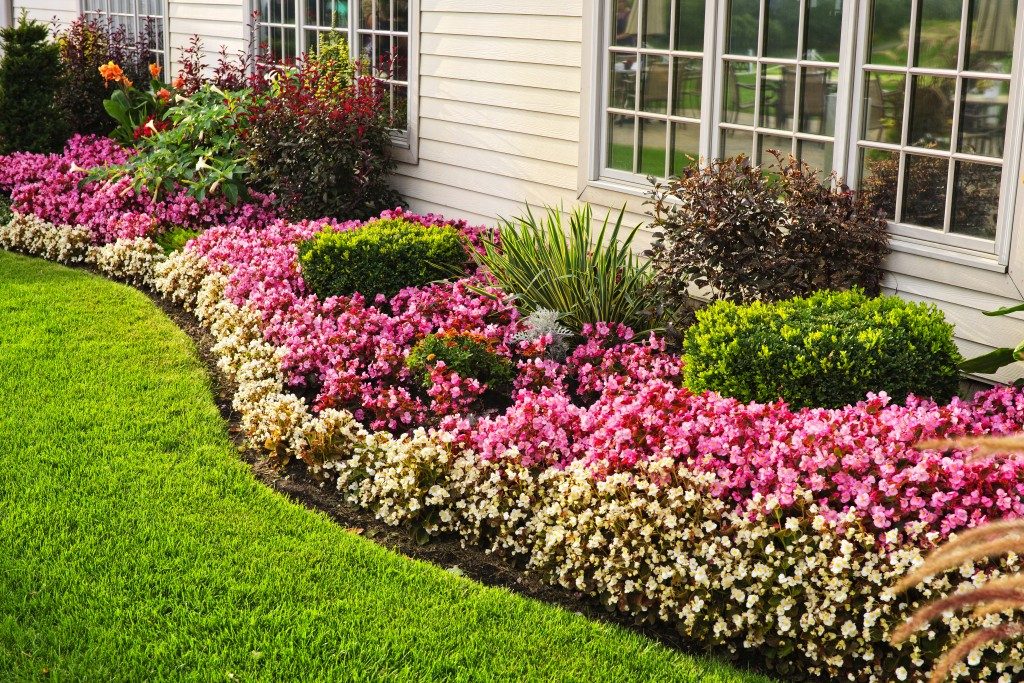- Gardening is known to promote better sleep and benefit the whole nervous system.
- Kids should be exposed to soil because healthy bacteria in the soil are good for their health.
- You can grow your garden and always have pesticide-free food at hand.
- Gardening is great for achieving mindfulness, recuperating from stress, and preserving memory, among other benefits.
One of the initial effects of the lockdowns during the pandemic was the food shortages due to the disruptions in the food supply chain. The scarcity of food items in the groceries compelled people to buy spades, rakes, and seeds to start home gardens.
Many made small gardens using the limited plots of available land for planting. But others had to contracted reliable retaining wall professionals to prevent rainwater from running through their huge gardens and ruining their crops.
No matter what size the gardens were, they provided more benefits than giving the families a source of fresh produce in their backyard. Here are the other benefits people can get from maintaining a garden at home.
- Amazing Benefits Of Maintaining a Garden at Home
- 1) Gardening Is a Wholesome Exercise
- 2) Strengthen Bones
- 3) Gardening Leads to Mindfulness
- 4) Gardening Preserves Memory
- 5) The Heart Loves Gardening
- 6) A Vegetable or Fruit Garden Is a Great Way to a Healthy Diet
- 7) Gardening Soil Is Packed with Useful Bacteria
- 8) Urban Gardening Is a Blessing in Disguise
- 9) Complements Addiction Therapy
- 10) Help with High Blood Sugar Management
- 11) Better Sleep
- 12) Stress Reliever
- 13) Super Effective in Burning Calories
- 14) Brings Families Closer Together
- 15) Promotes Exercise
- 16) Builds Immunity
- 17) Improves Mood
Amazing Benefits Of Maintaining a Garden at Home
From being an awesome stress reliever to doing a great physical activity to engaging the whole family, gardening is (maybe) a long-lost art slowly making a comeback. Granted, you can hire garden maintenance services, but would it give you the same feeling of gratification as doing it on your own?
Gardening comes with a whole lot of perks that not a lot of people know about. We have shortlisted 15 of the most beneficial traits of having a garden at home and ways to care for your garden without much effort.
1) Gardening Is a Wholesome Exercise
According to the CDC, gardening, and garden maintenance are considered exercises. The motions we make while cutting and raking allow for light to moderate exercise, which is perfect for elderly people, kids, or adults that can’t do demanding workouts.
On the other hand, shoveling, chopping wood, and digging are deemed active exercises, so in reality, there’s a little bit of exercise in gardening for everyone.
2) Strengthen Bones
Since gardening typically involves kneeling, squatting, walking, and lifting, your body is committed to effective resistance and weight-lifting movements that are perfect for maintaining good bone health.
While you’re maintaining a home garden, remember to move slowly and safely to avoid cramps. There are some great low-maintenance garden ideas that seniors can enjoy all day long.
3) Gardening Leads to Mindfulness
Gardening is much like yoga and meditation — it helps achieve mindfulness. Gardening is an activity that will make you happy and promote agency and empowerment, too. While gardening, you are being present in the moment and focusing on the activity at hand.
You can spend hours focusing on your garden: make a garden maintenance checklist and enjoy your day in the sun. For instance, flower garden maintenance is a great way to spend your day.
4) Gardening Preserves Memory
Medicine has linked exercise to cognitive benefits for a long time. By doing lawn & garden maintenance, you are engaging in moderate physical activity that can help generate cranial nerves. A low-maintenance garden is a great idea for the elderly who want to keep their memory in good shape. There are amazing low-maintenance front garden ideas that will be great for the memory.
Gardening also enhances memory through the exercise a person gets from it. Exercise can improve the cognitive functions of the brain. Initially, researchers were at odds on whether gardening can help improve cognitive skills by themselves. But studies have shown that gardening allows the memory-related nerves in the brain to grow.
A study in Korea involving people going through treatment for dementia showed brain nerve growth in areas associated with memory. Both female and male participants showed the same result.
In another study, it showed that using gardening to improve people’s mental health was effective in effectively treating people suffering from dementia. In Norway and the Netherlands, among the participants in their Greencare programs were people with dementia. These individuals work in gardens and farms for a good part of the day.
5) The Heart Loves Gardening
If you’re after some light cardio, gardening is your best pick. For one, basic garden maintenance means planting, digging, and weeding, which are all great cardiovascular exercises in disguise that burn calories and support the heart. Even garden tool maintenance is an exercise that keeps the heart pumping.
6) A Vegetable or Fruit Garden Is a Great Way to a Healthy Diet
You can use some great low-maintenance garden bed ideas to plant peppers or other vegetables that grow in garden beds. Choosing to grow your own fruits and vegetables is the best way to ensure you and your loved ones are getting fresh food that’s safe to eat.
Your own veggie or fruit garden is the ultimate definition of farm-to-table. There’s no such thing as a maintenance-free garden, but a low-maintenance garden design will easily fit into your home aesthetic.
7) Gardening Soil Is Packed with Useful Bacteria
For instance, the soil you’d use for vegetable garden maintenance or garden bed maintenance is abundant in microbes like nematodes, bacteria, fungi, protozoa, viruses and mites. All of these generate the so-called feel-good chemicals, like tryptophan, as part of serotonin.
8) Urban Gardening Is a Blessing in Disguise
Living in the city doesn’t have to deprive you of gardening. Urban gardens are a hit! They’re great for reducing noise levels. For instance, there is a cute, low-maintenance Japanese garden design you can tweak to your preference.
9) Complements Addiction Therapy
The maintenance of gardens can boost the effects of addiction therapy. According to a study, plants can trigger positive emotions in alcohol-recovering individuals. Horticulture therapy is on the rise across rehabilitation centers.
10) Help with High Blood Sugar Management
Gardening is considered a solid exercise for diabetic patients. Whether we’re talking about water garden maintenance, taking care of low-maintenance rain garden plants, or a typical front garden, we’re thinking of exercise that can drastically reduce blood sugar levels and develop type 2 diabetes.
11) Better Sleep
With all the weeding, kneeling, walking around, and trimming, you’ve also been absorbing a lot of sun and air so your body can function properly. After a day in the garden, your whole system is now relaxed, so you can fall asleep easier.
12) Stress Reliever
Engaging in some garden work is very beneficial after being exposed to stress. According to a study, participants who suffered from stress overcome their emotions through gardening. You can find great low-maintenance garden plants all year round, such as fern and catmint. If you’re feeling extra creative, browse some low-maintenance small rock garden ideas and really do a project.
These days people are stressed by the current situation, especially after new variants of the coronavirus emerged. But they can fight the stress and anxiety they are feeling through gardening. Studies have shown that people can recover from stress faster when they do gardening.
The level of the hormone called cortisol shows this decline in stress levels in their bodies. Aside from recovering from stress, people who do gardening work also return to a positive mood after working in the garden.
13) Super Effective in Burning Calories
Whether talking about a low-maintenance small garden design or massive gardening projects, in both cases, you’ll be engaged in an effective exercise. This will burn as many as 330 calories in an hour of gardening. In addition, you can find some super cute ideas to design a rock garden and burn even more calories by moving and arranging rocks.
14) Brings Families Closer Together
Garden maintenance cost is one of the aspects of gardening that is a great consideration for family budgets. As an awesome family activity, gardening can bring families closer together. You can engage your family members in planning a garden design, outlining the budget for the project, sowing, weeding, or trimming, and spending a day in the sun with your family and see your bond become stronger and stronger.
15) Promotes Exercise
Since gardening requires a lot of work, homeowners can exercise while taking care of their produce. Even the Centers for Disease Control and Prevention (CDC) considers gardening a moderate exercise that allows 154-pound persons to use up to 165 calories when they work in the garden for 30 minutes. It is comparable to dancing and playing golf while carrying the golf clubs.
It allows people to build their muscles and use every major muscle group in their bodies. The physical exertion required for garden work allows people to offset weight gain due to aging. It also promotes rest, and people who work in their gardens can sleep at least seven hours at night.
16) Builds Immunity
Another benefit offered by gardening is it allows people to build their immunity. When people work on their garden outside the house, they get their daily dose of vitamin D from the sun. Around 30 minutes of sun exposure allows the body to absorb at least 8,000 international units (IU) of the vitamin.
The body uses Vitamin D for several purposes, including building the immune system and strengthening the bones. Moreover, working in the garden while under the sun also lowers the risk of several types of cancer, including bladder cancer, breast cancer, prostate cancer, and colorectal cancer.
Additionally, vitamin D also manages the amount of phosphate and calcium in the body. These nutrients help the body keep the muscles, bones, and teeth healthy. Vitamin D also reduces the risk of developing metabolic syndrome, dementia, and psoriasis flares.
While the body receives all of these benefits, it’s still important to avoid overexposure to the sun since it can increase skin cancer risk.

17) Improves Mood
Gardening also improves the mood of a person and increases his self-esteem. When people work in the garden, they will feel their anxiety levels go down. With this, any feelings of depression will also slowly disappear.
A lot of people feel inexplicably happy when they garden. Gardening is known to trigger happy thoughts and eventually lead to decreased feelings of depression and anxiety, according to a large study conveyed in 2011. Moreover, gardening is an outdoor activity with plenty of sunlight and air, making garden maintenance benefits much more prominent. Plus, if you plant lavender, one of the best low-maintenance garden plants, your mood will definitely benefit from your hobby.
Another study involving people who suffered from depression showed an improvement in their outlook after participating in a garden intervention activity for at least 12 weeks. The researchers noted that the mental health of the participants improved. Depressive symptoms gradually disappeared. Researchers continued to monitor these improvements even a few months after the study ended. Due to this, gardening is a good way for a person to fight anxiety and depression.
Gardening offers more than just a source of produce for homeowners. It also allows them to deal with the current situation until everything goes back to normal.

